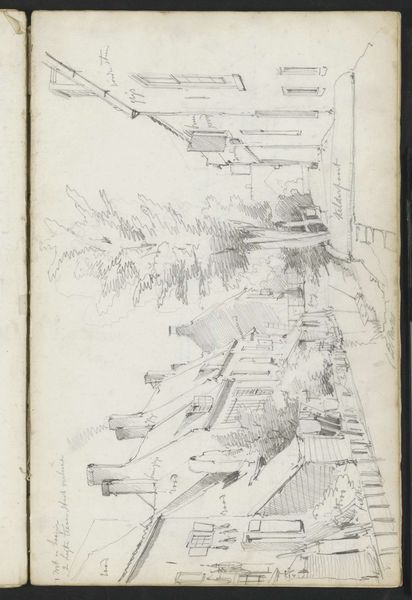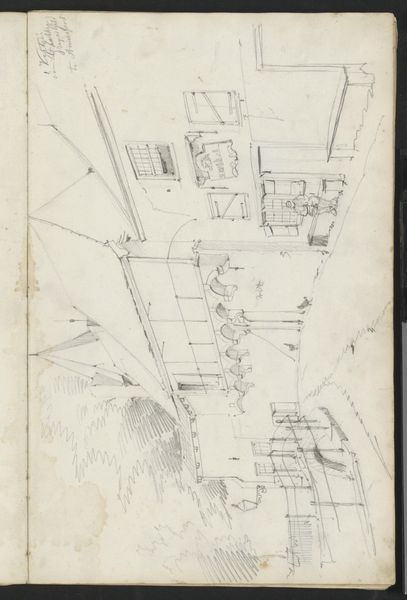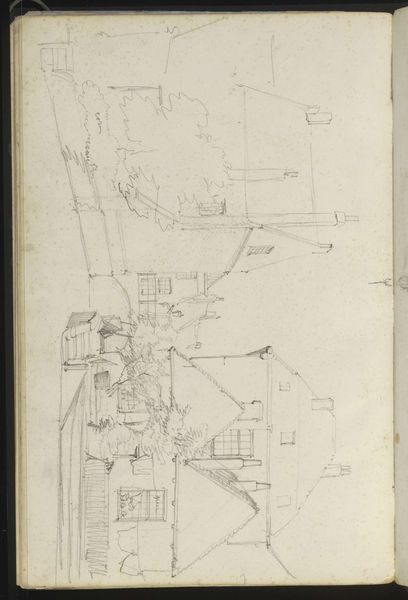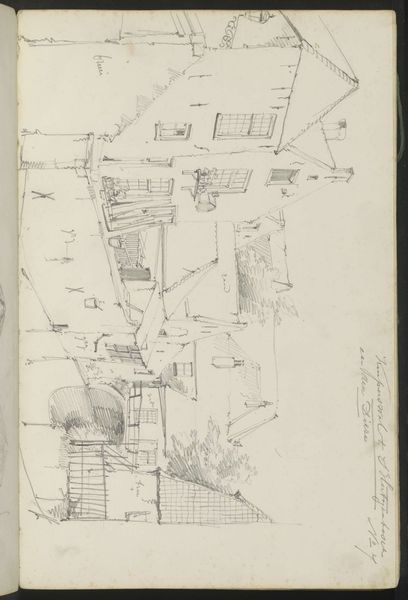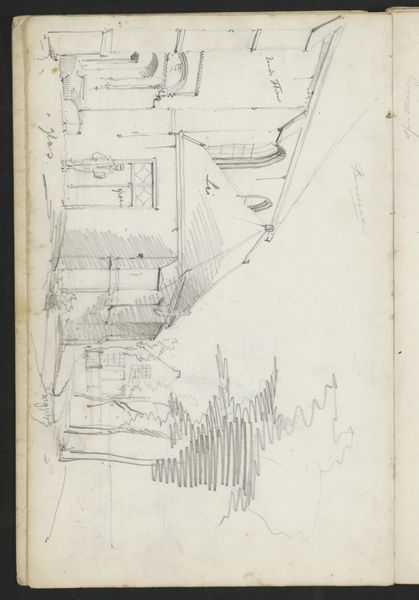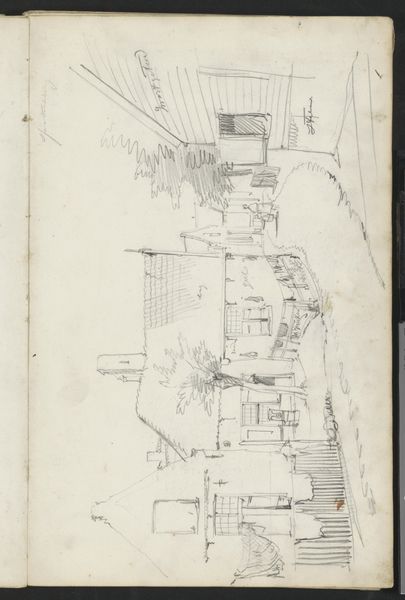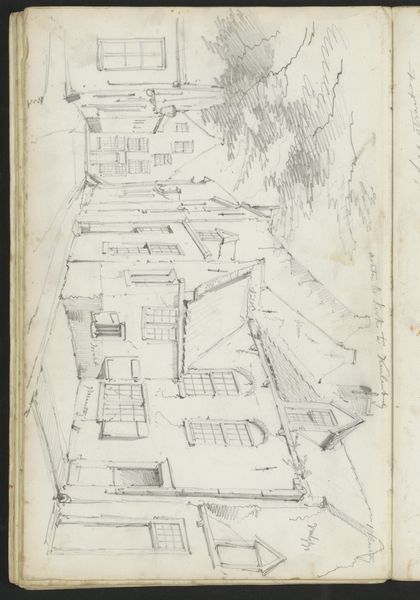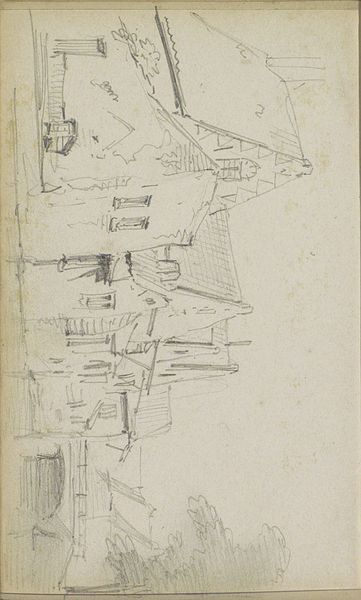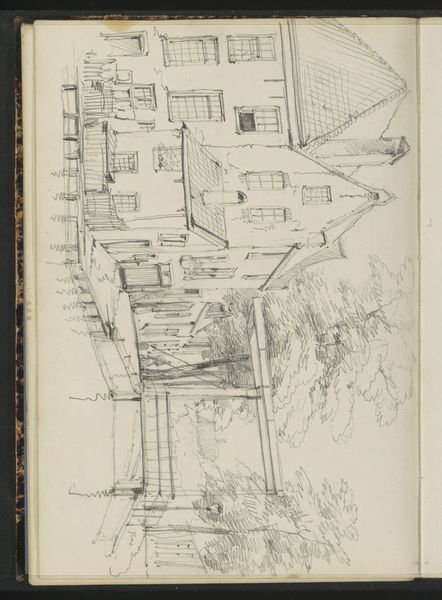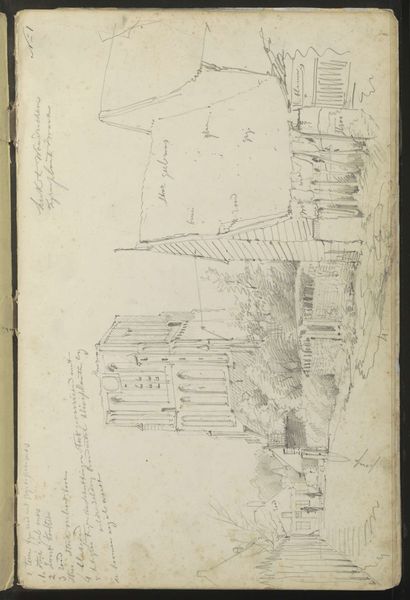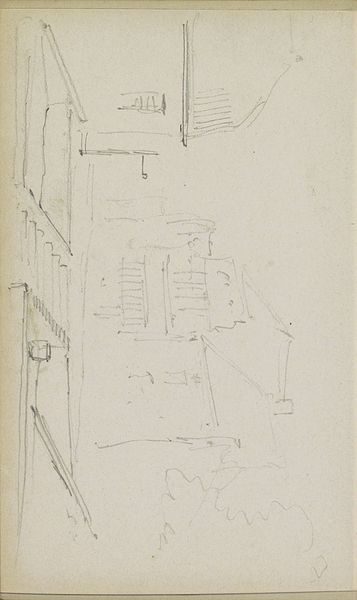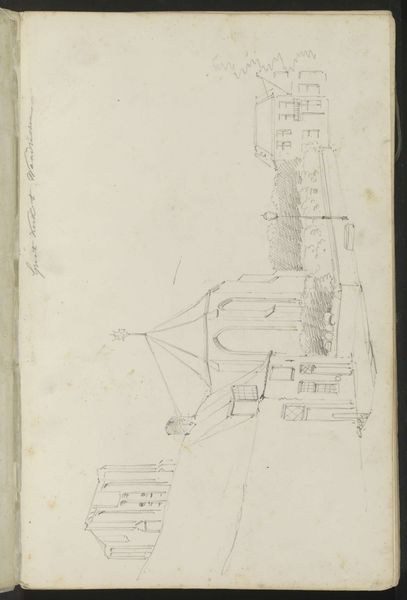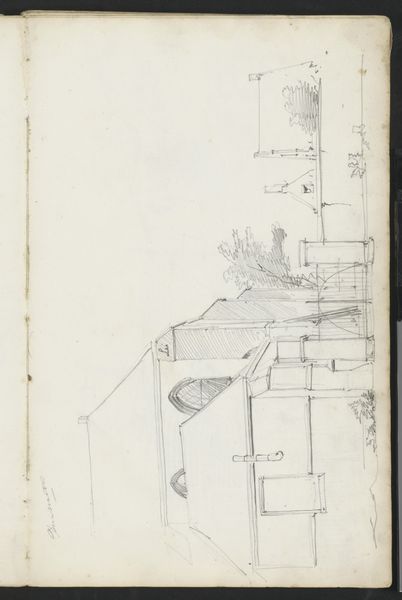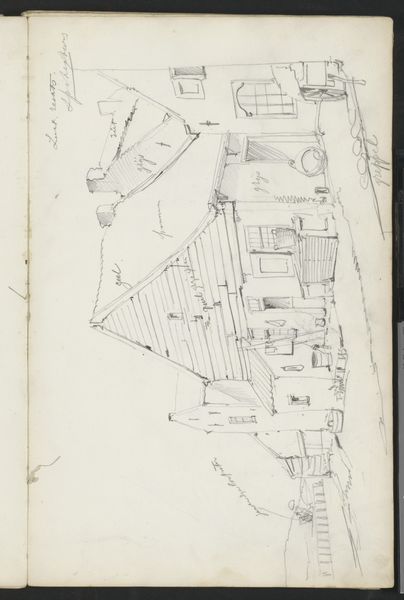
drawing, pencil
#
drawing
#
pen sketch
#
sketch book
#
landscape
#
personal sketchbook
#
sketchwork
#
ink drawing experimentation
#
pen-ink sketch
#
pencil
#
pen work
#
sketchbook drawing
#
storyboard and sketchbook work
#
sketchbook art
#
realism
Copyright: Rijks Museum: Open Domain
Editor: Here we have Willem Koekkoek’s "Bridge Over a Canal," created sometime between 1849 and 1895, using pencil and pen. It's currently housed at the Rijksmuseum. The sketch is quite simple, but I find it inviting; it gives a peek into 19th-century Dutch life. What do you see in this piece, especially given your perspective on the social role of art? Curator: It is a commonplace scene, isn't it? Consider where such sketches might have been made, and who might have been looking at them. Sketchbooks like this, especially when collected, were highly personal records of experience, yet also had the potential to circulate among a limited group – often other artists, perhaps patrons. The act of sketching, especially en plein air, was deeply interwoven with notions of authenticity and direct engagement with the world. Editor: That’s an interesting point. Did these personal sketchbooks then inform the larger paintings Koekkoek created? Curator: Exactly. How does an artist use sketches like this to present a certain idealized version of Dutch life to a wider audience? Were they trying to reinforce a specific sense of national identity? By emphasizing a humble, yet picturesque scene, how might the artist have contributed to the contemporary art market? Remember, representations of the Netherlands were also being sold to tourists and the elite in Dutch society. Editor: So, the sketchbook might be more than just a personal record, but almost a step in creating and shaping a marketable identity? I hadn't considered that before. Curator: Precisely. This small sketch contains layers of potential socio-cultural interpretation. Looking closely changes how we perceive its place in art history and within the cultural context of its time. Editor: This really illuminates how much the "simple sketch" can tell us about both the artist and society. Thank you!
Comments
No comments
Be the first to comment and join the conversation on the ultimate creative platform.
